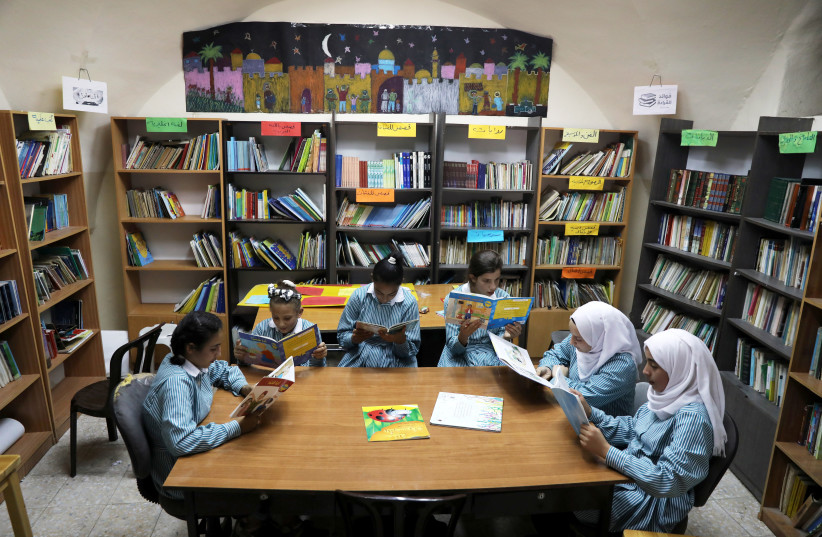Last Thursday, while the 15-member UN Security Council held its regular monthly debate on the Palestinian-Israel conflict, the head of the United Nations Relief Works Agency for Palestinian Refugees declared that the agency faces an “existential” threat due to the drop in funding. UNRWA Commissioner-General Philippe Lazzarini issued his stark warning ahead of the renewal of UNRWA’s mandate in the fall.
But let’s step back and consider the framework in which he was speaking: The monthly UNSC debate. Despite the critical refugee problems taking place around the world as a result of the Russian invasion of Ukraine, the Taliban takeover of Afghanistan, and the Ethiopian-Tigray conflict – to give just a few examples – only the Palestinians merit an ongoing UNSC monthly spotlight, alongside other mandated debates in other UN bodies.
This is because the UN has given the Palestinians the unique status of “perpetual refugees,” which can be handed down from one generation to the next, and appointed UNRWA to care for their needs and their needs alone, while all other refugees in the world are cared for by the United Nations High Commissioner for Refugees.
Inherent paradox
Compounding the absurdity, on the same day, Palestinian Authority Ambassador to the UN Riad Mansour told reporters that the PA is renewing its push for full membership in the world body, instead of the non-member state status it enjoys today. This would unilaterally grant the Palestinians full international recognition of statehood, without negotiating any agreement with Israel over borders, security, and other critical issues. Mansour expressed “cautious optimism.”

The two declarations show the inherent paradox. Under the UN’s definition and Palestinian ideology, the same people would be considered refugees even if they lived in their own fully recognized state. Today, Palestinian “refugees” living anywhere in the world, uniquely retain their refugee status even when they have citizenship and can vote.
Back to Lazzarini’s plea for funds for UNRWA: As The Jerusalem Post’s Tovah Lazaroff reported, UNRWA currently serves 5.6 million refugees in Gaza, the West Bank, east Jerusalem, Jordan, Lebanon and Syria. It has a $1.6 billion budget for 2022, of which $817 million is for core programming. To date, the organization has received $838m.
Lazzarini blamed the chronic lack of funds in part on what he called “coordinated campaigns to delegitimize UNRWA.” But let’s just consider for a minute the real reasons that the need for UNRWA is being questioned and why the Palestinian topic does not have the priority it once enjoyed – despite all the mandated UN discussions.
More than 70 years of UNRWA activity
UNRWA was founded in 1949 to provide what was meant to be a temporary solution until the “Palestinian refugee problem” could be resolved. At the time, there were approximately 726,000 Arabs (according to UN figures) who came under UNRWA’s auspices. Today, the figure of “Palestinian refugees” in UNRWA’s care stands at more than 5.5 million. Incredibly, over the past seven decades, the number has grown by millions. UNRWA has not helped a single Palestinian refugee solve their official refugee status, on the contrary.
Other reasons for the drop in funding follow the reports which show where the money is going. Various NGOs researching the textbooks and education system in UNRWA-run schools found evidence of support of terrorism and the cult of martyrdom. There have also been acknowledged cases of Hamas creating terror tunnels and weapons stores under UNRWA schools in Gaza.
It has been more than 70 years since the Palestinian refugee crisis was ostensibly created when the Arab world rejected Palestinian statehood alongside the State of Israel. Several Arab countries have since signed peace agreements with the Jewish state, but the Palestinians still hope they will both gain international recognition as an independent state and keep international aid as perpetual refugees.
Far from transforming Palestinian refugees into self-sufficient individuals, UNRWA has fostered dependency and a culture of entitlement; given the Palestinians no motivation to return to the negotiating table in good faith; and furthered false dreams of a “right of return,” to destroy Israel, instead of building lives based on peace and economic security alongside the Jewish state.
UNRWA doesn’t deserve more funding without undergoing a dramatic reform to ensure that it is alleviating the Palestinian refugee situation and not perpetuating it.
